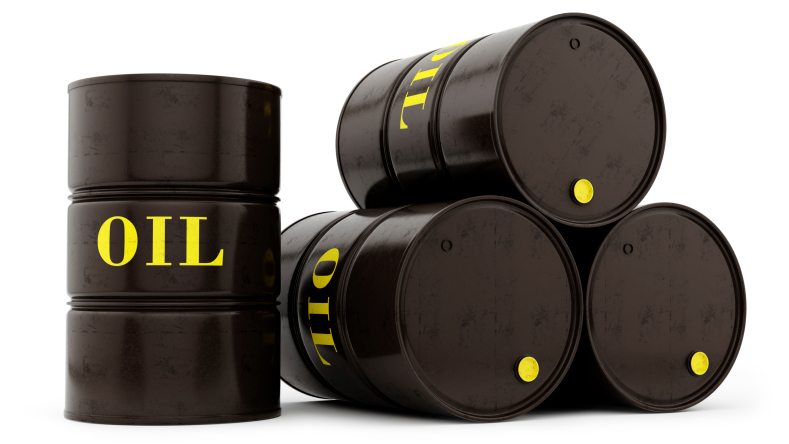
The pure play exploration and production companies could find the going much tougher than even the integrated giants did. At least Exxon and Chevron had some profit from their refining operations. These five producers have no such prop.
How bad is it? On April 1, the Enterprise posted price for West Texas Intermediate (WTI) was $46.54 a barrel. On June 30, that same barrel sold for $55.92, and the current price is $43.57 a barrel. Whatever boost Devon got from the rising price of crude has disappeared and may not return for some time to come. The posted price is the amount Enterprise will pay per barrel for a specified grade of crude oil.
Devon Energy Corp. (NYSE: DVN) is scheduled to report earnings before the markets open on Tuesday. Analysts expect second-quarter earnings per share (EPS) of $0.42 on revenues of $3.73 billion. In the same period last year, Devon posted EPS of $1.40 on revenues of $4.51 billion. Devon was one of the top five producers in our survey of Permian Basin oil companies. Devon trades at forward price-to-earnings (P/E) ratio of 44.52 and a price-to-book ratio of 1.16. The consensus price target is $73.75, and shares closed on Friday at $49.42. The implied potential gain of 49% is almost certainly a sign that analysts have not been paying attention to Devon and are waiting for the latest earnings report to adjust price targets and ratings.
ALSO READ: Which Coal Miners Will Live to Dig Another Day?
Chesapeake Energy Corp. (NYSE: CHK) is set to report earnings before markets open on Wednesday. Analysts have consensus estimates for a loss of $0.11 per share on revenues of $2.76 billion. In the second quarter of last year Chesapeake posted EPS of $0.36 on revenues of $5.15 billion. The company already has suspended its dividend, which pushed the share price down sharply, and Chesapeake continues to sell assets as it tries to improve its balance sheet. Chesapeake trades at an infinite forward (P/E) ratio and a price-to-book ratio of 0.59. The consensus price target is $12.80, and shares closed on Friday at $8.66. The implied potential gain of nearly 49% reflects poor performance more than it does an opportunity for a big gain.
Transocean Ltd. (NYSE: RIG) is scheduled to report second-quarter results after markets close on Wednesday. The Switzerland-based deepwater driller is expected to report EPS of $0.50 on revenues of $1.7 billion. A year ago, Transocean posted $1.61 EPS on $2.33 billion in revenue. The offshore drillers have arguably been among the hardest hit by the falling price of crude. Drilling in deep water is hugely expensive and low crude prices make continued investment by production companies a poor gamble, and drillers pay the price. Transocean’s price-to-book ratio is a mere 0.38. The consensus price target is $13.66, and shares closed on Friday at $13.26. The stock is essentially fully valued at about a quarter of its price just five years ago. Transocean once traded at around $170 a share.
Apache Corp. (NYSE: APA) is scheduled to report second-quarter results on Thursday, and the consensus estimates call for a per-share loss of $0.28 on revenues of $1.86 billion. In the year-ago quarter, the company posted EPS of $1.67 on revenues of $3.71 billion. The company took a write-down of $5.2 billion in February, and its position as one of the leading producers in the Permian Basin was hit hard by the decline in crude oil prices. Apache’s forward P/E ratio is 47.28 and the price-to-book ratio is 0.83. The consensus price target on the stock is $67.73 and shares closed at $45.86 on Friday, indicating a potential gain of about 48%.
ALSO READ: 6 Big Stocks With Massive Upside Potential
Petroleo Brasileiro S.A. (NYSE: PBR), known as Petrobras, is currently scheduled to report results on Friday, but whether that will happen is anyone’s guess. Analysts are looking for EPS of $0.25 on revenues of $27.97 billion. In the second quarter of 2014, Petrobras posted $0.72 EPS on revenues of $36.91 billion. The corruption scandal and low crude oil prices have taken their toll on the company’s stock price, and there is little indication that any improvement is in sight. The company’s forward P/E ratio is 6.73 and the price-to-book ratio is 0.48. At Friday’s closing price of $6.80, the company’s potential upside is about 47%, based on a consensus price target of $10.01.
Travel Cards Are Getting Too Good To Ignore (sponsored)
Credit card companies are pulling out all the stops, with the issuers are offering insane travel rewards and perks.
We’re talking huge sign-up bonuses, points on every purchase, and benefits like lounge access, travel credits, and free hotel nights. For travelers, these rewards can add up to thousands of dollars in flights, upgrades, and luxury experiences every year.
It’s like getting paid to travel — and it’s available to qualified borrowers who know where to look.
We’ve rounded up some of the best travel credit cards on the market. Click here to see the list. Don’t miss these offers — they won’t be this good forever.
Thank you for reading! Have some feedback for us?
Contact the 24/7 Wall St. editorial team.




